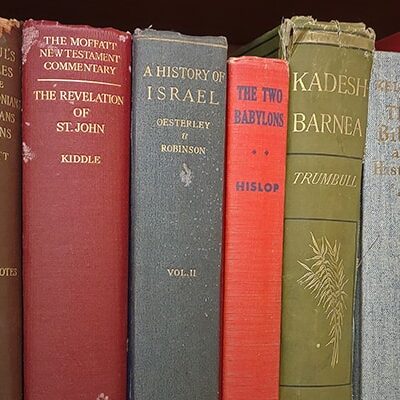The Savior clearly said He would fight! The prophecies concerning Christ said He would fight, and wage war! Specific prophecies said He would cheerfully carry out the death penalty for evil, wicked men.
Yet, Jesus Christ is usually portrayed as a “peacenik,” an anti-war, non-violent, pacifistic person who would invariably turn the other cheek, overlook every affront, appease and placate every aggressor.
Isaiah prophesied of Christ, “…the spirit of the LORD shall rest upon him, the spirit of wisdom and understanding, the spirit of counsel and might, the spirit of knowledge and of the fear of the LORD;
“And shall make him of quick understanding in the fear of the LORD: and he shall not judge after the sight of his eyes, neither reprove after the hearing of his ears:
“But with righteousness shall he judge the poor, and reprove with equity for the meek of the earth: and he shall smite the earth with the rod of his mouth, and with the breath of his lips shall he slay the wicked.
“And righteousness shall be the girdle of his loins, and faithfulness the girdle of his reins” (Isaiah 11:2-5). This is hardly the mental image of Christ which has been planted in the minds of millions of nominal Christians. “Slay the wicked?” The average nominal Christian who possesses a mental image of Jesus would never believe such a thing.
Young, Would-Be Revolutionaries
Christ’s disciples flocked to Him not because they believed they would become grey-haired old patriarchs who would die and molder in their graves for twenty or so centuries awaiting His second coming. Instead, they believed He would become the King of Israel; that He would usurp the corrupt throne of the Herods; that He would expel the occupying Roman forces, and that He would reestablish the greater Solomonic Kingdom of Israel, which at one time extended from modern Iraq to the seven streams of the Nile in Egypt.
These young men were would-be revolutionaries, expecting a complete regime change in Israel. They were not vying for positions in the clergy, nor did they covet a religious office.
At the famous “Last Supper,” they argued vehemently over which one of them would be at a Cabinet-level position, like viceroys or chiefs of staff: “And there was also a strife among them, which of them should be accounted the greatest” (Luke 22:24). This was not merely a laid-back, casual discussion. It was strife. Voices were raised. Anger was present.
Jesus rebuked them, saying “The kings of the Gentiles exercise lordship over them; and they that exercise authority upon them are called benefactors. But ye shall not be so: but he that is greatest among you, let him be as the younger; and he that is chief, as he that doth serve” (Luke 22:25, 26).
Yet, moments later, He reassured them, “And I appoint unto you a kingdom, as my Father hath appointed unto me;
“That ye may eat and drink at my table in my kingdom, and sit on thrones judging the twelve tribes of Israel” (Luke 22:29,30). They could hardly interpret this in terms of two thousand hazy years in the future! To them, it meant “here and now!” Sitting on thrones? Judging, ruling, handing down decisions? This was hardly a “religious” calling; hardly a description of somber religious rites, echoing chants, or administering communion.
The proof of this is easily discerned. At the feeding of the four and the five thousand, when the miraculous cornucopia basket gave forth its inexhaustible supply of bread and fish, the crowd assayed to take Him, hoist Him on their shoulders, and march on Jerusalem. Jesus went into a boat and crossed Galilee to avoid the crowd (John 6:14,15).
When Jesus twice cleansed the temple, He did so in what anyone would characterize as a violent act! He did not strike or injure any person, but He did throw over tables, crates and pens, and, using a hand-made cord, drove animals outside. Money changers were scrambling around on the floor, where their coins had been thrown; doves were flying wildly around inside; sheep, goats and cattle were adding their voices to the cacophony.
What could anyone think who had been there? That this was the moment. This was it! He was exerting His authority,;taking over. The Temple was the very center of religious and social life among the Jews; it was, in a real sense, the religious capital. He was taking charge of the temple. Or so they thought.
At the triumphal march into Jerusalem in those final days before His arrest and mock trial, Christ rode on a white colt, while the enthusiastic crowd played the game of using their garments to place on the rocky trail up from Kidron, insuring not a hoof touched the ground. Others were picking them up as the donkey passed, running to the head of the line, to place them on the path again. Many were waving palm fronds in the air, and the crowd took up a chant, “Hosanna! Hosanna! Glory to God in the Highest, Jerusalem, behold your king!” They did not say, “behold your vicar, or your right reverend, or your priest!” No, they used a “political” term, “King!”
This was in every sense a huge, exciting political rally — a crowd of thousands, fully expecting that at the terminus of their march would come the culmination of their hopes and dreams; Christ mounting the throne of Israel!
Continually, the disciples were frustrated when it seemed He was determined to delay; to dash their hopes. Finally, at the moment of His arrest in the garden, Peter tried to precipitate the revolution! Just as they were arresting Jesus, he whipped out his sword, and tried to kill the person nearest him, Malcom, the servant of the High Priest. Malcom dodged, and Peter succeeded only in slicing off his ear.
Christ bent over, picked up the ear, stuck it back on Malcom’s head, and, as He uttered a quick prayer, Malcom’s ear was healed — perfectly whole as before. Christ then rebuked Peter for striking with his sword. Peter was outraged! He faded back into the darkness in shame, dismay, anger and disbelief. He felt betrayed! Only a few hours later, Peter cursed and swore three times, disclaiming any knowledge of Jesus, just as prophesied. He bitterly believed his hopes and dreams had been dashed into pieces. Not only Peter was disappointed. All of the disciples “forsook Him and fled.”
They didn’t stand around with their hands steepled, with a beatific expression of holy martyrdom on their faces, but they ran and hid. To them, the revolution was a complete failure!
It was not until these most unwilling witnesses were finally convinced, against their will, by Christ’s many miraculous appearances to them, that they believed — truly believed at last — that He really was the Son of God; that He had been murdered, buried, and had risen again.
Finally, just before He was taken up, the anxious group asked the most important question which had perplexed them from the beginning. Time and time again they had supposed He would establish His government; overthrow the Herodian line; expel the Romans. Time and time again their hopes were dashed when He did not continue the events in motion which would have completed the revolution.
Now, they asked, “Lord, wilt thou at this time restore again the kingdom to Israel?” (Acts 1:6). Ponder that question carefully. Think about what they did not ask. The language is clear. They did not ask would He give them religious rites and orders; would He tell them which one should be the chief apostle; would He tell them what kind of liturgy to follow. No, they asked in plain language if He now, finally, at long last, would “restore again the kingdom to Israel!”
Their hopes and dreams were born in an occupied country; the hopes of a downtrodden, exploited people under a brutal dictatorship, and the fear of the dreaded Sanhedrin, whose agents could carry out death sentences. They wanted a new government; a righteous, fair, equitable government. They knew He was the most qualified man they had ever known. Had not He continually talked about His coming Kingdom?
But now, Christ told them it was not for them to know “the times and the seasons,” and they watched open mouthed as He ascended from them.
Christ was not, and is not now, a pacifist.
When being grilled by Pilate, He said, “My kingdom is not of this world: if my kingdom were of this world, then would my servants fight, that I should not be delivered to the Jews: but now is my kingdom not from hence” (John 18:36).
It was only because His time was not yet that He desisted from fighting.
The question is not whether Jesus Christ would fight, but in whose cause? He ultimately intends to fight the war to end all wars, not become embroiled in half measures of corrupt human politics.










